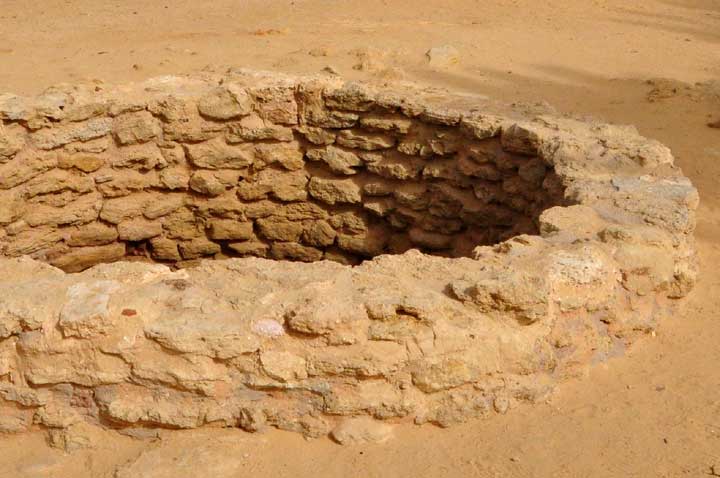Isaac's Wells

In re-reading the first 26 chapters of Bereshit (Genesis)- the first book of the Torah- I have heard echoes of the past in Israel’s situation today. I began to wonder whether I wasn’t being too prejudiced, and reading into the book, what wasn’t there.
Even though I approached chapter 26 with an open mind and wide eyes, I had to ask why this particular sentence was written. Surely, the author must have understood that for a story to be passed down through the generations, it needed to be current.
So, this is what I found:
Driven by a famine in the land, Isaac, like his father Abraham before him, goes towards Egypt to find food. He stops at a small city-state bordering Gaza, where he sows the land with great success, becoming the envy of the local inhabitants. Facing the potential for conflict, the king orders Isaac out of town with the words:
'Go away from us, for you have become far too big for us.'
Expelled from the fertile land, Isaac and his household are now dependent on water out in the steppe
So, Isaac departed from there and encamped in the wadi of Gerar, where he settled. … And Isaac's servants dug in the valley and found a well of living water. And the herdsmen of Gerar quarreled with Isaac's herdsmen, saying: 'The water is ours.' And they dug another well, and they strove for that also And when they dug another well, they disputed over that one also;
Gen. 26: 6- 21
Isaac can change a situation by changing his behavior, but he cannot change his neighbors. Thus, he breaks a destructive cycle with his inventiveness and sensitivity.
He compromises while holding his vision. Even if water symbolizes life, Isaac realizes that other waters must nourish his vision after his water becomes a source of conflict. To find calm, life-giving waters, he excavates.
Then- chapter 26 continues –
He moved from there and dug yet another well, and they did not quarrel over it; so, he called it Rehoboth, saying, “Now at last the Lord has granted us ample space to increase the land
The king and the chief of his troops came from Gerar to see Isaac, and they said to him:
'We now see plainly that the Lord has been with you, and we thought: Let there be a sworn treaty between our two parties. Let us make a pact with you that you will not harm us… they exchanged oaths, and Isaac sent them away, and they departed from him in peace.
It is difficult not to conclude that this story, already told four thousand years ago, is not just about some small nomadic families but a metaphor for the later nation of Israel.
The story then ends:
And it came to pass the same day, that Isaac's servants came, and told him about the well they had dug, and said unto him: 'We have found water.' And he called it Shibah. Therefore, the name of the city Beer-sheba is still in existence to this day

